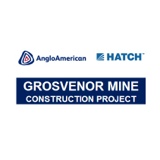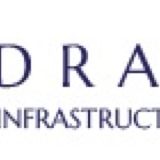Title Page
-
Weekly Safety Audit
-
Jobsite:
-
Jobsite Picture:
-
Date of Inspection:
-
Weather (Take Screenshot from Heat Index App)
-
Project Superintendent
-
Number of Employees
-
Audit Performed By:
1. GENERAL SAFETY & HEALTH
-
1.1 Government / All-In-One Posters Up to Date (English & Spanish)
-
1.2 Safety Meetings / Pre-Task / Equipment Inspections Up to Date
-
Stretch & Flex Completed
-
1.3 SDS Current / Binder Available
-
1.4 Chemical Contents Clearly Labeled as to Contents / Form Oil / Diesel / Gasoline / Curing Compound
-
1.5 Muster / Rally Point Identified & Communicated to Workers
-
1.6 Green Tape on Hard Hat (New Hire Employee)
-
1.7 Red Tape on Hard Hat (Transferred Employee)
-
1.8 Workers Aware of Earbuds / Cellphone Use
-
1.9 UFI Site Specific Orientation completed
-
1.10 Name of one Employee Questioned About the Morning's Pre-Task Meeting.
2. FIRST AID
-
2.1 First Aid Kit Readily Available and Stocked Properly
-
2.2 First Aid / CPR Personnel - Training Current / 2 Person Minimum
-
2.3 Place Designated for Cooling Off - Workers Understand the Signs of Heat Exhaustion
3. SITE / PUBLIC PROTECTION
-
3.1 Ground Level Barricades / Signs / Cones / Cone Poles in Place Where Needed
-
3.2 Orange Netting in Place / Active Deck
-
3.3 Orange Netting in Place / Permanent Guardrail
-
3.4 Traffic Control / Training / Stop Slow Paddle / Hi-Viz Garments
-
3.5 Diesel Tank Double Wall with Berm / Barricaded / No Smoking Sign / Bonding Strap
-
3.6 55 Gallon Drums Stored on Pallet and Secured
4. PERSONAL PROTECTIVE EQUIPMENT - INCLUDING SUBCONTRACTORS
-
4.1 Hearing Program Followed Where Required / Pans / Grinding / Chipping /
-
4.2 Functional and in Good Repair. Employees Wearing Appropriately / Glasses / Hard Hats
-
4.3 Clear Glasses being used Inside Building
-
4.4 Respiratory Protection Program Followed Where Required (water, vacuum, OSHA Table 1)
-
4.5 Full Body Harness Worn Correctly
-
4.6 Retractable Lifelines Removed from Service if Defective
-
4.7 Hand Protection - Task Specific
-
4.8 Face Protection - Task Specific
-
4.9 Foot Protection (Sturdy work boots, cover heal)
-
4.10 Proper Clothing, Hi-Viz Vests or Shirt
-
4.11 Eye-Wash Station Available During Concrete Pour
5. CONCRETE CONSTRUCTION
-
5.1 Post Tension Cable Pulling Operations Protected with Barricades & Signs
-
5.2 Rebar Caps or Wood Box Covers Protection In Place
6. HOUSEKEEPING
-
6.1 Work Space Clean & Free From Excess Trash / Nails / Debris from Cutting Wood / Banding
-
6.2 Materials Stored and Stacked on Firm Foundation at Least 10 Feet from Edge of Slab
-
6.3 Garbage can available outside office / emptied at regulars intervals?
-
6.4 Water Kegs / Sanitary / Cups / Trash Receptacle
-
6.5 Task Lighting / Daylight / Night Time Pours Walkways & Ladders
7. LADDERS & STAIRWAYS
-
7.1 Extension Ladder / Secured / Orange Walk-Thru Hand Grab Bars (temporary deck access only)
-
7.2 Extension Ladder - Rubber Feet in Place
-
7.3 A-Frame Ladders / Used Correctly / Decals in Place
-
7.4 More Than One Ladder for 25 or People on any Level
-
7.5 Safe Access to Dumpsters / Flatbed Trucks / Concrete Buckets
-
7.6 Stairways Equipped with Handrails Installed Between 30-37"
-
7.7 Job Made Ladders / Pull Up Rope / Steal Grab Bars
-
7.8 Job Made Ladder Rungs 12" on Center & Side Rails 16"-20" Apart Properly Constructed (2x6 Minimum Side rail). Common Nails Used on Rungs.
-
7.9 Ladders Side Rail Extends 36" - 42" Above Landing Area and Secured
-
7.10 Stair landings lighted with clear and clean access?
-
7.11 Job Made Ladder 3-point Contact Sign in Place
-
7.12 Workers Observed Using 3-point Contact
-
7.13 Area Around Top & Bottom of Ladders Kept Clear
8. FALL PROTECTION
-
8.1 Adequate Temporary Guardrails Installed Properly
-
8.2 Adequate Permanent Guardrails Installed Properly / Wood & Cable
-
8.3 Stairs / Ramps / Walkways
-
8.4 Elevator Shafts Protected
-
8.6 Holes 2 Inches or Wider Covered / Secured / Labeled
-
8.7 Hand Rails Installed Properly up to Leading Edge Barricades
-
8.8 Horizontal Lifelines Installed Properly
9. SIGNS, SIGNALS & BARRICADES
-
9.1 Stripping Signs Posted with area Barricaded
-
9.2 Fall Hazard Areas Barricaded Properly with Signage
-
9.3 Lower Level Controlled Access Zone Set up Properly During Stripping Process
10. TOOLS & EQUIPMENT
-
10.1 Broken Tools Removed from Service / Tagged Out
-
10.2 Hand Tools Observed in Good Shape
-
10.3 Air Compressor Have a Shut Off Valve on Blow Pipe
-
10.4 Air Compressor Hose Condition
-
10.5 Safety Retainers on Air Compressor Hoses to Prevent Accidental Disconnect
-
10.6 Extension Cords / Power Tool Cords / Knicks / Ground Pin
-
10.7 Hammer Head in Good Shape with no Grinder Cuts
-
10.8 Side Handles & Guards In Place on Grinders and Drills
-
10.9 Saw Horse in Use / Top Plate Inspected / Saw Blade Adjustment
11. SHORES, RESHORES, STRIPPING & STRIPPING NETS
-
11.1 Perimeter Lacing Installed on all Unsecured Shores to Prevent Accidentally Falling Out of Place
-
11.2 Stripping Nets in Good Shape / On Site (order when framing material is shipped)
-
11.3 Shoring Scaffolding with a Height to Base Ratio Greater than 4 to 1 is Restrained from Tipping by Guy Wires, Bracing or Equivalent Means
12. FIRE PROTECTION
-
12.1 Generator(s) - 10# Fire Extinguisher Mounted on Stand with Red Flag / Certification Current
-
12.2 Plywood placed under generator while being using on ground level (keeps oil from going into dirt)
-
12.3 Diesel Tank - 20# Fire Extinguisher Mounted on Stand with Red Flag / Certification Current / 25 to 75 Feet Range
-
12.4 Chopsaw or Torch - 10# Fire Extinguisher Mounted on Stand with Red Flag
-
12.5 Torch Set / Gauges / Flash Back Arrestors / Hose Condition / Storage of Tanks
-
12.6 Flammable Storage Tank
13. SHORING SCAFFOLD / STRIPPING WAGON
-
13.1 Leveled / Footing
-
13.2 Pins / Laced Properly
-
13.3 OSHA Planks Being Used
-
13.4 Guardrails / Employees Tied Off
14. EXCAVATIONS
-
14.1 Spoil Piles at Least 2 Feet Minimum From Excavation
-
14.2 Proper Entry & Exit in Place
-
14.3 Properly Barricaded
-
14.4 Employee Training Completed / Pre-Task Plan Completed
-
14.5 Ladder Provided if Deeper than 4 Feet
-
14.6 Heavy Equipment Inspections Completed with Qualified Operator & Evaluation
15. CRANE, RIGGING & LIFTING EQUIPMENT
-
15.1 Chain Sling condition (tag in place and legible, hooks)?
-
15.2 Tag Lines of Proper Length for Specific Tasks
-
15.3 Port-A-John with Proper Rigging Being Utilized
-
15.4 Crane Swing Radius Barricades in Place
-
15.5 Nylon Straps Condition (red yarn, legible ID Tag)?
-
15.6 Skip Pan / Wire Rope / Shackles / Weight Limits Legible
-
15.7 Crane Radius Plan Available
-
15.8 Tag on Wire Rope Concrete Deadman
-
15.9 Forklift Inspections Completed
-
15.10 Qualified Crane Signal Person/Rigger Identified with Orange Brim Guard
-
15.11 Qualified Forklift Operator with Approved Training Credentials and Equipment Evaluation Completed
-
15.12 Concrete Column Bucket (wire rope, tag legible, shackle cotter pin)
16. OUTRIGGER
-
16.1 Guardrail systems are in place and at proper height?
-
16.2 Plywood installed on sides - top to bottom
-
16.3 Double 2x4 stop block in place and secured at the end of outrigger?
-
16.4 Tie off anchors identified and in place?
-
16.5 Orange cones and plastic cone bars in place around outrigger?
-
16.6 Shackles screw pin type with the pin fixed from rotation by either a cotter pin or ‘mousing’ with tie wire?
-
16.7 Fall protection required beyond this point in place at entry?
-
16.8 Blue Notice Sign 5,000 Pound cart load in place?











